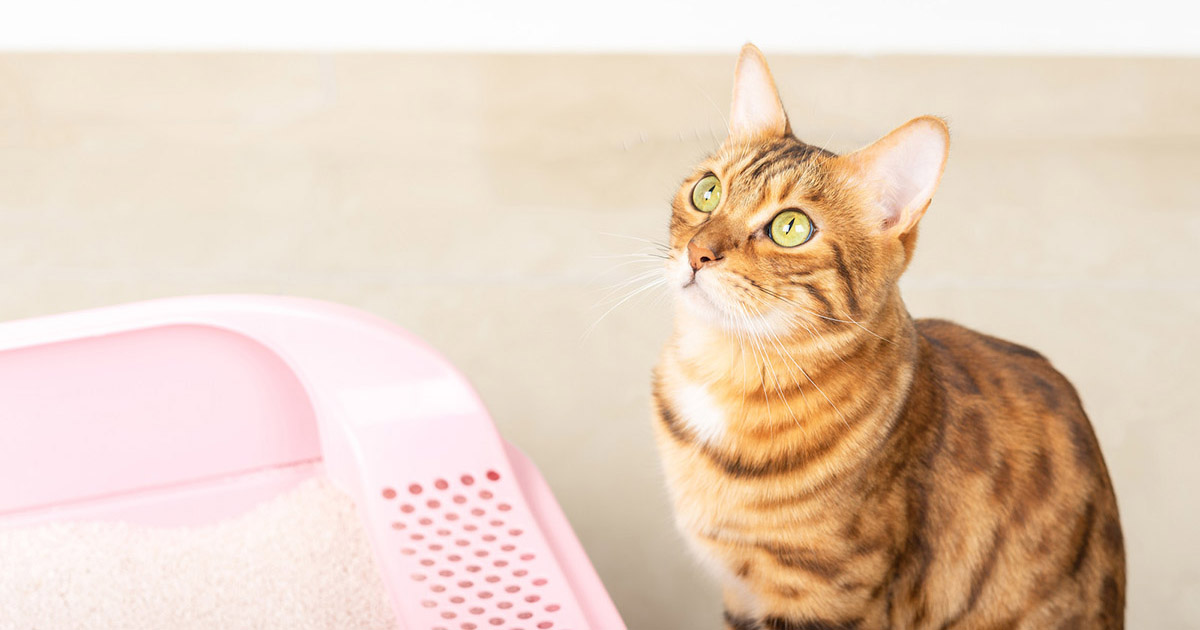Why You Should Never Flush Cat Poop Down Your Toilet - Important Facts
Why You Should Never Flush Cat Poop Down Your Toilet - Important Facts
Blog Article
The content which follows in relation to How to Dispose of Cat Poop and Litter Without Plastic Bags is pretty much compelling. Read it yourself and figure out what you think of it.

Introduction
As cat owners, it's necessary to be mindful of how we deal with our feline friends' waste. While it may seem hassle-free to purge cat poop down the toilet, this technique can have damaging repercussions for both the setting and human health.
Environmental Impact
Purging feline poop presents harmful virus and bloodsuckers right into the water supply, posing a significant threat to aquatic ecosystems. These pollutants can adversely affect aquatic life and concession water quality.
Health Risks
In addition to ecological concerns, flushing feline waste can additionally position health dangers to human beings. Cat feces might have Toxoplasma gondii, a parasite that can cause toxoplasmosis-- a possibly extreme health problem, particularly for expectant ladies and individuals with weakened immune systems.
Alternatives to Flushing
Thankfully, there are much safer and more accountable means to throw away feline poop. Think about the adhering to alternatives:
1. Scoop and Dispose in Trash
One of the most common technique of throwing away feline poop is to scoop it into an eco-friendly bag and toss it in the garbage. Be sure to make use of a committed trash scoop and get rid of the waste without delay.
2. Use Biodegradable Litter
Select eco-friendly feline trash made from products such as corn or wheat. These trashes are environmentally friendly and can be safely gotten rid of in the garbage.
3. Bury in the Yard
If you have a yard, take into consideration hiding pet cat waste in a designated area far from vegetable gardens and water sources. Make sure to dig deep sufficient to avoid contamination of groundwater.
4. Set Up a Pet Waste Disposal System
Buy an animal waste disposal system particularly created for feline waste. These systems utilize enzymes to break down the waste, minimizing odor and environmental influence.
Verdict
Liable family pet ownership expands past giving food and shelter-- it also entails appropriate waste management. By refraining from purging cat poop down the commode and selecting alternative disposal methods, we can decrease our ecological impact and protect human health.
Why You Should Never Flush Cat Poop Down the Toilet
A rose by any other name might smell as sweet, but not all poop is created equal. Toilets, and our sewage systems, are designed for human excrement, not animal waste. It might seem like it couldn’t hurt to toss cat feces into the loo, but it’s not a good idea to flush cat poop in the toilet.
First and foremost, assuming your cat uses a litter box, any waste is going to have litter on it. And even the smallest amount of litter can wreak havoc on plumbing.
Over time, small amounts build up, filling up your septic system. Most litter sold today is clumping; it is made from a type of clay that hardens when it gets wet. Ever tried to scrape old clumps from the bottom of a litter box? You know just how cement-hard it can get!
Now imagine just a small clump of that stuck in your pipes. A simple de-clogger like Drano isn’t going to cut it. And that means it’s going to cost you big time to fix it.
Parasitic Contamination
Believe it or not, your healthy kitty may be harboring a nasty parasite. Only cats excrete Toxoplasma in their feces. Yet it rarely causes serious health issues in the cats that are infected. Most people will be fine too if infected. Only pregnant women and people with compromised immune systems are at risk. (If you’ve ever heard how women who are expecting are excused from litter cleaning duty, Toxoplasma is why.)
But other animals may have a problem if infected with the parasite. And human water treatment systems aren’t designed to handle it. As a result, the systems don’t remove the parasite before discharging wastewater into local waterways. Fish, shellfish, and other marine life — otters in particular — are susceptible to toxoplasma. If exposed, most will end up with brain damage and many will die.
Depending on the species of fish, they may end up on someone’s fish hook and, ultimately on someone’s dinner plate. If that someone has a chronic illness, they’re at risk.
Skip the Toilet Training
We know there are folks out there who like to toilet train their cats. And we give them props, it takes a lot of work. But thanks to the toxoplasma, it’s not a good idea.

We were made aware of that article on Don’t flush cat feces down the toilet through a good friend on a different domain. Are you aware of anybody else who is occupied with the subject? Feel free to share it. Thanks for taking the time to read it.
Additional Resources Report this page